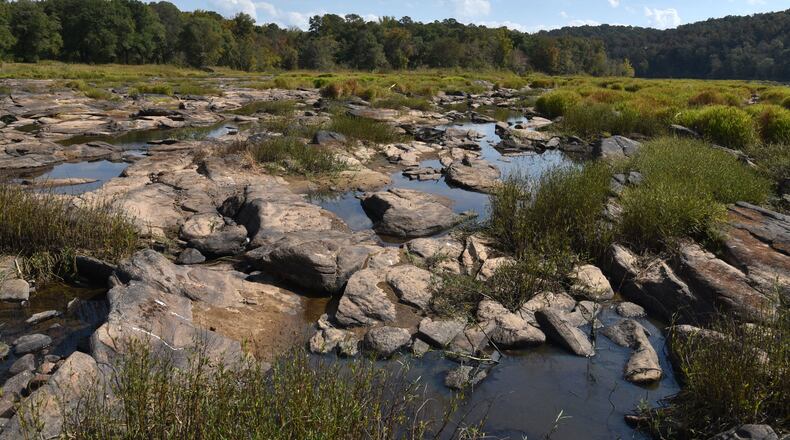Gov. Nathan Deal came into office eight years ago with hopes of settling Georgia's long-running water wars feud with neighbors. He'll leave office in 10 days with the fight nowhere near resolved.
But as lawyers from Georgia and Florida prepare to dive into five questions outlined by the U.S. Supreme Court last year, Deal’s administration for the first time revealed how close the two sides came to a compromise that could have swept aside the costly legal battle.
At Deal's portrait unveiling on Thursday, his top aide Chris Riley grinned widely as he warned a crowd of judges and politicians that what he was about to say would probably irk the army of attorneys working on the Georgia water case – but that he would share it anyways.
In the middle of Deal’s first term in office, in 2012 and 2013, the governor quietly met multiple times with his counterparts Bob Bentley in Alabama and Rick Scott in Florida. Deal had developed a rapport with Scott, Riley said, and was confident a compromise could be reached.
“We had offered a great deal that would have been a tough sell in northeast Georgia – but good for the entire state,” said Riley. The mood was optimistic, he added.
But Riley described the moment it fell apart: The governor was in Florida to seal the agreement when Scott looked at him and said, “Nathan, I just can’t accept the deal. I’m going to need someone in a black robe to tell me to make a deal.”
Added Riley: “That was in 2013, and I haven’t been able to tell that story since then.”
Scott’s office did not immediately return a message seeking comment.
Georgia is now girding for a new court-appointed expert judge to reevaluate Florida's legal challenge after the Supreme Court's 5-4 decision kept the case alive. And congressional fights over the issue are still pending.
The state's top officials were long under a gag order and couldn't talk much about the negotiations. But Deal has previously hinted at the near-miss that could have spared Georgia a legal bill that tops $30 million. (Florida's tally is even larger.)
Back in June, Deal urged his successor not to let federal lawmakers hash the water fight out for them and lamented how "politics gets in the way" of the negotiations.
"We had the advantage, at one point, when we were all three of us were early in their gubernatorial cycles," he said then. "That would have been the time when we could have reached an agreement. I thought we were going to get it done, but we didn't. And I regret that."
About the Author
The Latest
Featured




